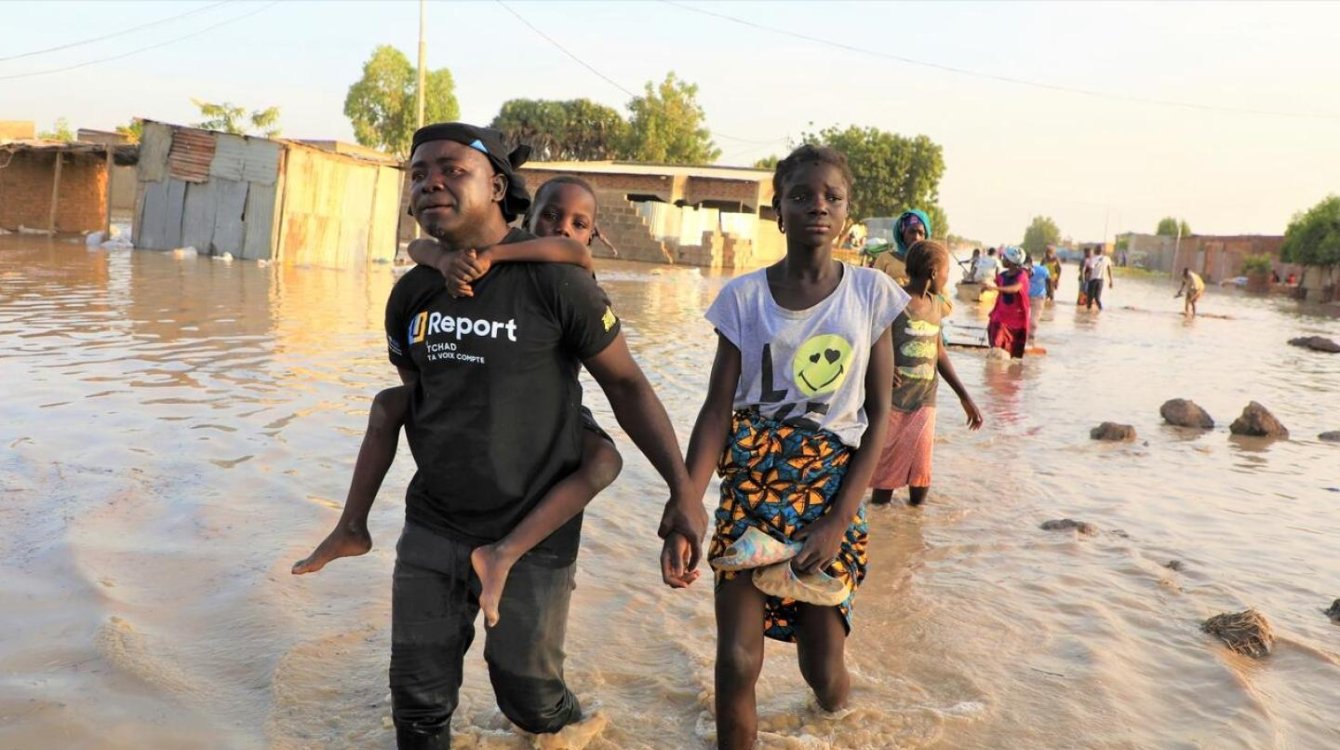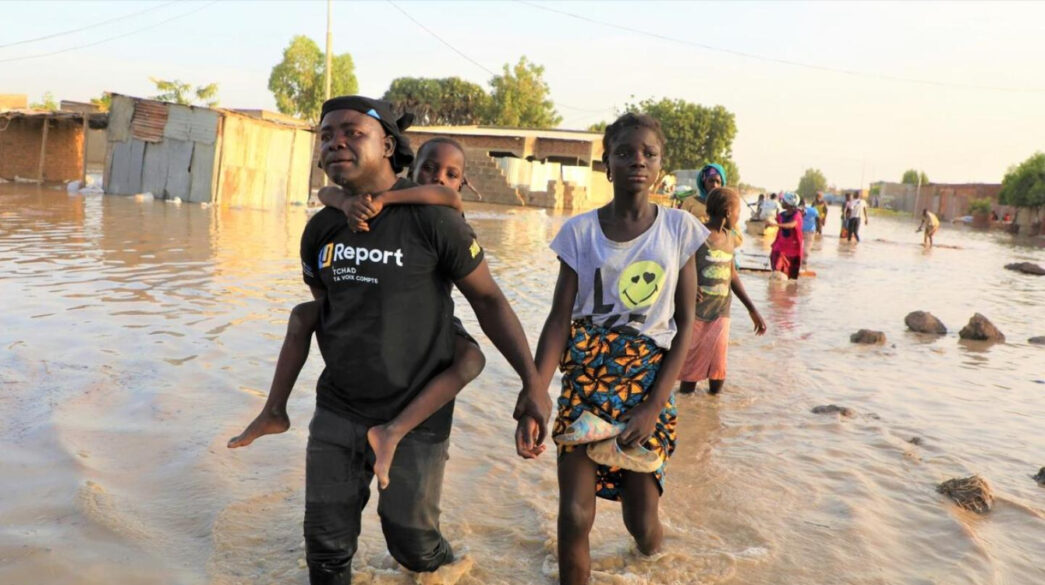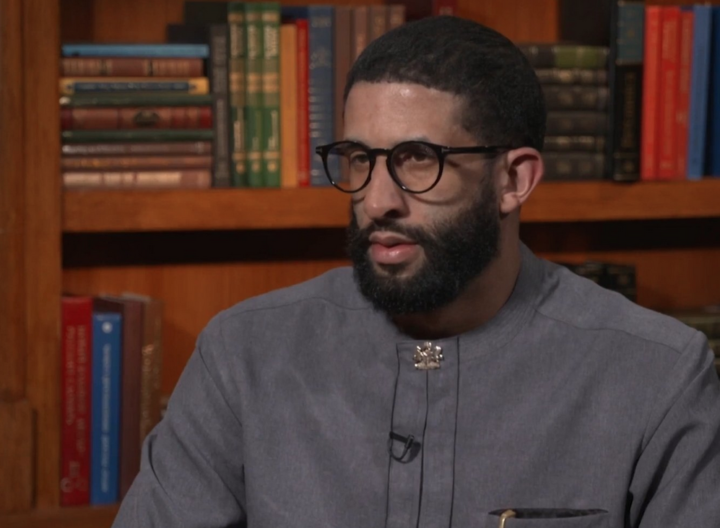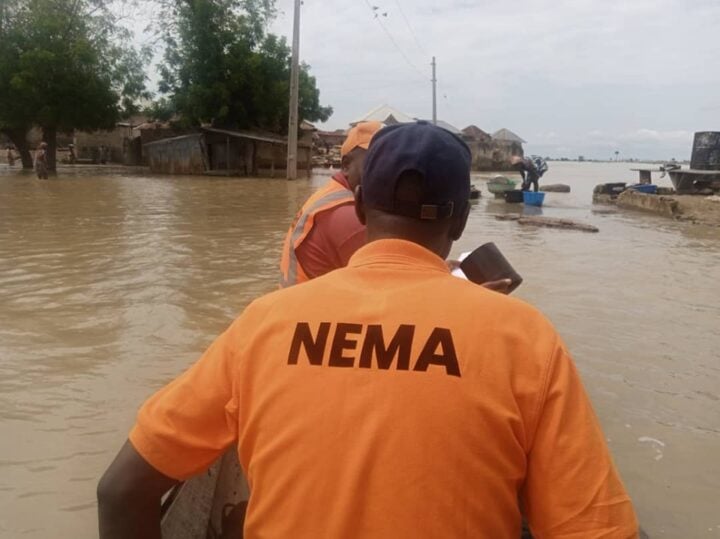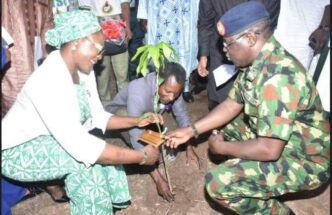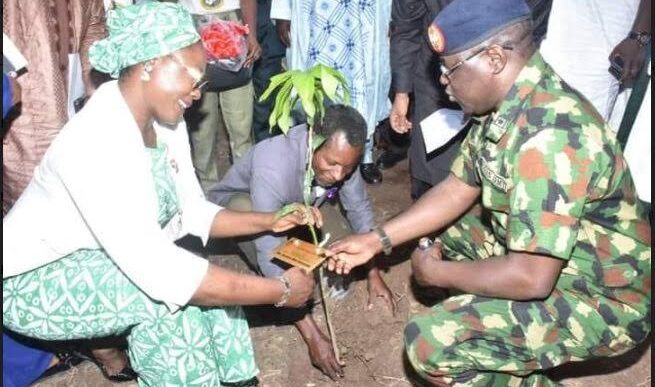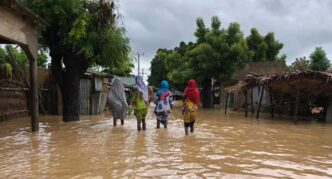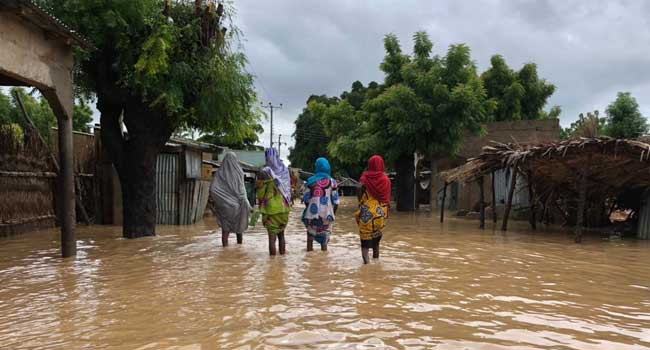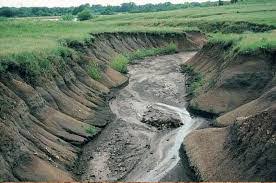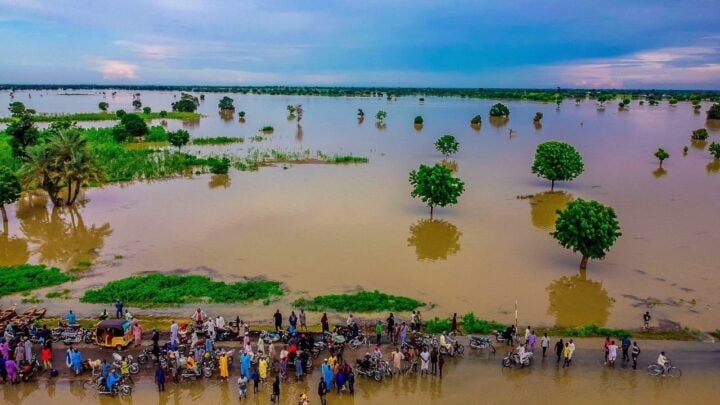Ayole Idowu, a climate change advocate, says the introduction of climate change education in Nigeria is imperative to groom leaders that would ensure a sustainable future for the country.
Idowu said it is troubling that students in a country like Nigeria with far-reaching climate consequences “remain uninformed and unprepared” to address the challenges.
The climate activist, through a petition, is demanding the establishment of climate change clubs in public secondary schools in Nigeria as a way of creating awareness and building the students’ capacity to learn and innovate.
In this interview with TheCable’s JEMILAT NASIRU, he explains how engaging students in activities like tree planting, cleanup campaigns, renewable energy and recycling projects can groom them to become climate solutions-oriented.
Advertisement
Idowu listed social media engagement and online activism, collaborations with influencers, development of climate-focused games and apps, and involvement in policy-making and advocacy efforts, as ways to build students’ interest in climate matters.
He further said the students can, in turn, transfer knowledge to immediate communities, ensuring wider and inclusive sustainable practices.
TheCable: What inspired you to advocate for climate change awareness/education in Nigeria, particularly in secondary schools?
Advertisement
Idowu: Throughout my decade-long teaching career in Nigerian secondary schools, spanning both private and public institutions, I’ve made a troubling observation: climate change awareness is woefully lacking. This discovery has left me concerned about our ability to empower future leaders with the knowledge and skills necessary to tackle this pressing global issue. My inspiration to advocate for climate change awareness and education in Nigeria, particularly in secondary schools, stems from the realization that climate change is one of the most pressing issues of our time, with severe impacts on our environment, health, and economy.
It’s alarming that despite the far-reaching consequences of climate change, many Nigerian secondary school students remain uninformed and unprepared to address this challenge. As a result, I strongly believe that we must prioritize climate change education in our schools, equipping students with the understanding and tools required to take action.
By doing so, we can cultivate a generation of climate-conscious leaders who will drive positive change and ensure a sustainable future for Nigeria. The question remains: how can we effectively integrate climate change education into our curriculum and spark a movement that will inspire young Nigerians to take ownership of this critical issue?

TheCable: In your opinion, what are the most pressing climate change issues facing Nigeria, and how do you see secondary school students contributing to solutions?
Advertisement
Idowu: Nigeria is grappling with severe climate change impacts, including desertification in the north, which leads to food insecurity, livelihood loss, conflict; and frequent devastating floods in coastal and riverine areas, erosion threatening livelihoods communities, especially in the Niger Delta; Unregulated deforestation plays a significant role in climate change, biodiversity loss, and soil erosion, and food insecurity is exacerbated by climate-induced extreme weather events that disrupt agricultural production.
Secondary school students, as future leaders, can play a crucial role in addressing these challenges by educating their peers and communities about climate change, promoting sustainable practices, developing innovative solutions through science and technology projects, advocating for environmental policies, and engaging in community-based initiatives like tree planting and clean-up campaigns. Empowering students to take action allows us to unlock their potential to drive positive change and contribute to a sustainable future for Nigeria.
TheCable: What specific goals or objectives do you envisage are achievable through the establishment of these clubs?
Advertisement
Idowu: “Raising awareness, promoting sustainability, and taking action against climate change” is a common phrase used by the United Nations Framework Convention on Climate Change (UNFCCC) and the Intergovernmental Panel on Climate Change (IPCC). According to the United Nations, 2022, the climate change club is a dynamic group of individuals dedicated to making a positive impact on the environment. The goals of climate change clubs in schools is to raise awareness, promote sustainability and to take action against climate change. Through various activities such as organizing cleanups, engagement in climate games, training the students in sustainable ways of living, tree planting events, and developing sustainable practices in schools like recycling projects. The objective is to educate, empower, and inspire the students to become climate change advocates and change agents, so they can be well-equipped for the future.
TheCable: Does climate change education have to wait till secondary school level? Are there ways it can be introduced even earlier?
Advertisement
Idowu: Climate change education can be introduced at various levels of education; I am particularly passionate about focusing on Senior Secondary Schools. With my robust background in secondary school education and teacher training, I am confident in my ability to effectively integrate climate change education into secondary school curricula. My academic credentials include a Bachelor’s degree from Adekunle Ajasin University, a Master’s degree from the University of Lagos, and I am currently pursuing a PhD in STEM Education and Entrepreneurship with Biology at the African Center of Excellence for Innovative and Transformative STEM Education (ACEITSE), Lagos State University. Furthermore, I have completed a specialized program in Climate Change Adaptation and Mitigation from the United Nations Institute For Training and Research (UNITAR). This comprehensive expertise empowers me to inspire and educate both teachers and students about climate change, fostering advocacy, awareness, and sustainable practices in educational settings, and driving positive change for a more resilient future.
TheCable: What engagement models would help to encourage students’ participation in these clubs?
Advertisement
Idowu: To foster active participation in climate change clubs, a multifaceted approach will be implemented, beginning with reward-based essay competitions to spark students’ interest. This will be followed by a combination of engagement models, including incentives, student-led initiatives, hands-on activities like workshops, field trips, tree planting, and beach cleanups, real-world connections through guest speakers and feedback, celebrating successes, flexible commitment options, integrating climate change topics into multiple subjects, social events, and clear goals and expectations. By incorporating these elements, an inclusive and dynamic environment will be created that empowers, educates and inspires students to engage actively, learn, grow, and make a positive impact in addressing climate change.
TheCable: What kind of activities or programmes would you propose such clubs undertake?
Advertisement
Idowu: Well, for effective engagement, I propose that climate change clubs engage in a variety of activities to combat climate change and raise awareness. These include environmental actions like tree planting, beach cleanups, renewable energy projects, and educational efforts such as climate change campaigns, workshops on sustainable living, and field trips; community engagement through collaborations with local organizations and advocacy for policy changes like change.org; and creative expression through art, music, and writing projects focused on climate change. By incorporating these diverse activities, clubs can foster a comprehensive approach to addressing climate change and encourage active participation from members.
TheCable: How do you ensure the sustainability and continuity of these clubs and their impact on the broader community and society?
Idowu: We will ensure the sustainability and continuity of these climate change clubs and their impact on the broader community and society by training new leaders to take over when old ones leave, securing support from schools, governments, and organizations to access resources, involving the community to create ownership, sharing our successes and challenges to facilitate learning, continually educating and raising awareness to engage more people, making the experience fun and engaging to maintain member commitment, and partnering with other groups to amplify our impact.
TheCable: What support or resources do you think schools need to effectively establish and implement climate change clubs?
Idowu: Schools require a variety of resources to effectively establish and operate climate change clubs. These resources encompass financial support, human capital, and material assets. For instance, funding is essential to cover expenses related to club activities, such as organizing awareness campaigns, hosting guest speakers, and conducting research projects. Moreover, having dedicated staff members who are passionate about environmental issues and are willing to guide club members in their initiatives is crucial for the club’s sustainability. Educational materials, including books, videos, and online resources, play a vital role in educating club members about climate change and empowering them to take action. In addition to resources, access to equipment like laptops, projectors, and scientific instruments enhances hands-on learning experiences related to climate change. Administrative support is necessary for logistics, communication, and documentation tasks.
TheCable: What roles do policymakers and stakeholders in the education sector play in achieving these goals?
Idowu: Policymakers, teachers, and school administrators can play crucial roles in supporting climate change clubs by providing funding and developing policies, teachers can serve as club advisors, encouraging student engagement and participation, and integrating climate change into the curriculum, and school administrators providing resources and fostering partnerships, respectively, to help these clubs succeed and drive positive change.
TheCable: What are the main challenges you anticipate in the establishment and sustainability of these clubs in Nigerian secondary schools?
Idowu: The main challenges anticipated include lack of awareness and understanding of climate change, limited resources and funding, inadequate teacher training and support, competing priorities and busy school schedules, limited access to information and technology, cultural and societal attitudes towards environmental issues, lack of community involvement and engagement, insufficient policy support and guidance, limited opportunities for student leadership and empowerment, and sustainability and continuity after initial setup. Addressing these challenges is crucial to ensure the successful establishment and sustainability of climate change clubs in Nigerian secondary schools.
TheCable: How has your involvement in climate change advocacy impacted your personal life, development and worldview?
Idowu: My involvement in climate change advocacy has profoundly impacted my personal life, development, and worldview, leading to a deeper understanding of the interconnectedness of human and natural systems, such as the relationship between trees and humans, where trees provide oxygen and humans provide carbon dioxide, highlighting the need for mutual respect and care.
A sense of responsibility to act for the greater good, including adopting sustainable practices like using eco-friendly products, reducing energy consumption, and ensuring energy management and efficiency. It has impacted me to develop leadership, communication, and collaboration skills, enabling me to effectively promote sustainable habits and encourage others to join me in making a positive impact, encouraged the adoption of eco-friendly habits and lifestyle changes, such as: Using sustainable products like reusable bags, refillable water bottles, and energy-efficient appliances and avoiding products that contribute to climate change, like perfumes with harmful chemicals and single-use plastics. Embracing energy-efficient practices, like turning off lights and electronics when not in use.
TheCable: Beyond club establishment, what other ways do you think young people can be made more interested and involved in the fight against climate change?
Idowu: I think young people can be made more interested and involved in the fight against climate change through: Education and awareness campaigns, hands-on activities and workshops, mentorship programs with climate experts, community service projects focused on sustainability, social media engagement and online activism, collaborations with influencers and content creators, development of climate-focused games and apps, involvement in policy-making and advocacy efforts, support for climate change research and innovation, encouragement of sustainable lifestyle choices and habits, organization of climate-themed events, conferences, and festivals, and provision of resources and funding for climate-related projects and initiatives.
By engaging young people through various channels and approaches, we can foster a sense of ownership and empowerment, inspiring them to take action and become climate leaders.
Ayole Idowu is a Change Leader with Nguvu Collective

